Farming in Israel
Israel is a land of beaches, mountains and holy sites, but it’s also a land of lush green fields, vineyards and olive groves. And since the turn of the 19th century, when immigrants began arriving from Europe, bringing with them a wealth of knowledge about farming techniques, the agricultural system in Israel has gone from strength to strength.
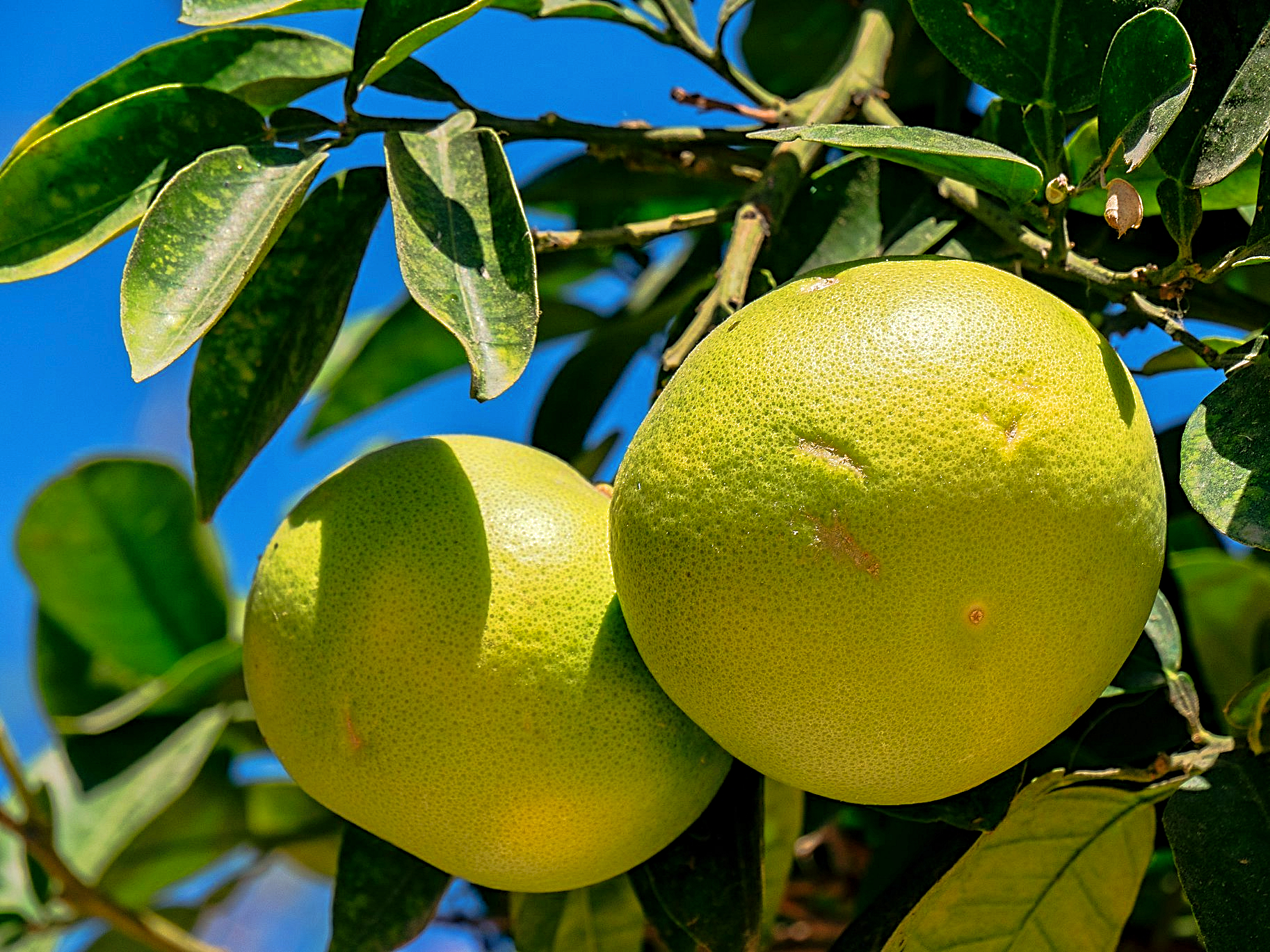
Sweeties growing in Israel. Photo credit: © Dmitry Mishin
Ostensibly, you wouldn’t be surprised - after all, Israel has a typically Mediterranean climate and fertile soil, making it ideal for the establishment of farms. But when you bear in mind that over 50% of the country is desert terrain, and only 20% of the land is naturally arable, you then begin to realize how remarkable Israel’s farming achievements are.World-Class Agriculture and Cutting Edge Farming Techniques in Israel
From hydroponic farming (think cherry tomatoes - an Israeli invention!) to koi farming, from avocado, oranges, grapefruit, and apples to date palms, olive groves, antelopes, and alpacas, and even snails, Israeli farming is today, a highly developed industry. Below, we’ll be taking a look at how farms took shape in the land, over the centuries, how farming techniques have evolved, and some of the products they yield today. We’ll also take a look at some of the numerous farms you can visit across Israel - from high up in the Galilee down to the Arava and Negev deserts, and not just learn about the products (and even taste them) but to stay overnight in guest accommodation.
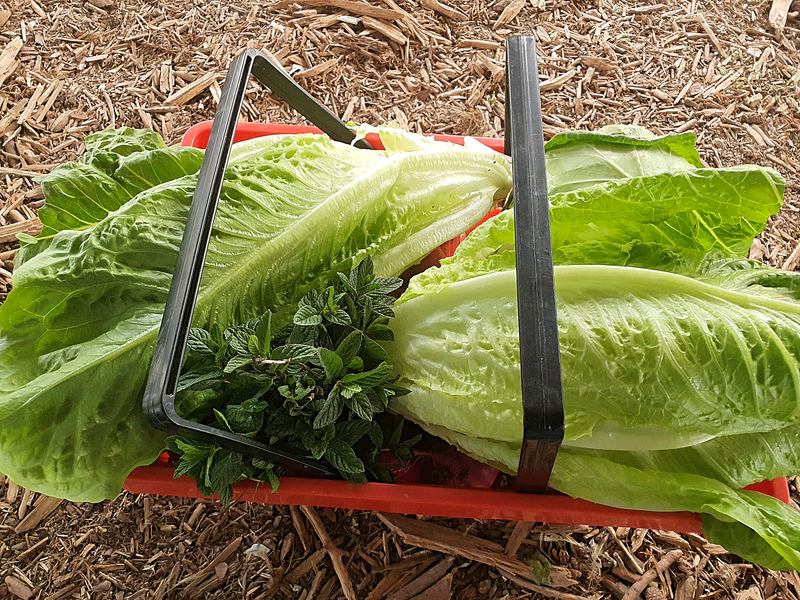
Israeli farm. Photo credit: © Oksana Mats
Farming in Israel - From Ancient to Modern Times
When did agriculture begin in Israel? Well, some archaeologists think as long ago as 23,000 years! Evidence points to the development of rural settlements - hamlets, villages, and farms - some with fields and some with terraces, many having access routes to markets.
Archaeologists have also excavated digging tools and stone objects, as well as olive and wine presses. From as long ago as the Bronze Age, it is clear that every aspect of the inhabitants’ lives revolved around the cycles of nature. In fact, the Gezer Calendar, written on a limestone tablet in the 10th century, actually records the annual schedule of agricultural work.
In the Bible, of course, Israel is famously referred to as the land of ‘milk and honey’ and compared to Egypt (beyond the Nile) and the Arabian desert, it truly was. The ancient Israelites feasted on wheat, olives, grapes, barley, pomegranates, and figs, not to mention melons, lentils, cucumbers, and chickpeas.
Barley was harvested in May, grapes were picked in August, and olives were harvested in the Fall. A relatively dry climate and hilly terrain provided valleys for growing (Jezreel in the north and the Sharon in the South) and springs close to Jericho made it possible to plant around the Jordan.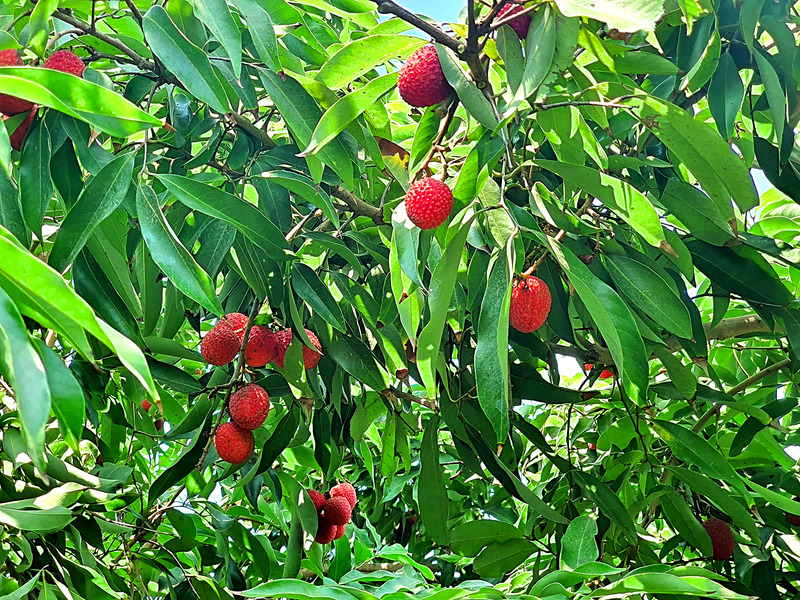
A lychee farm in Israel. Photo credit: © Oksana Mats
The Kibbutz and Moshav
Israel is also known across the world for its kibbutzim and moshavim. The kibbutz is a collective community, where all wealth is jointly owned and was traditionally agrarian. Today, many have privatized and are highly successful - Ein Gev, in the Galilee, has banana plantations, an Israel-type model dairy farm, and an ostrich breeding program. Yotvata, in the Arava desert, has a huge milk products factory, supplying millions of Israeli children with their much-loved ‘choco’ (fabled chocolate milk).
The moshav in Israel is also an agricultural settlement, but here all of the members are individual farmers who live together. Historically, the farmers would share equipment and avoid hired labor but today many Israelis who are not farmers buy land there and build their own private homes.
Built on land owned by the Jewish National Fund, the moshavim historically represented a middle ground between privately owned settlements and the communal kibbutzim. Today, many are still involved in Israeli farming ventures including grape cultivation, chicken rearing, dairy production, and beekeeping.
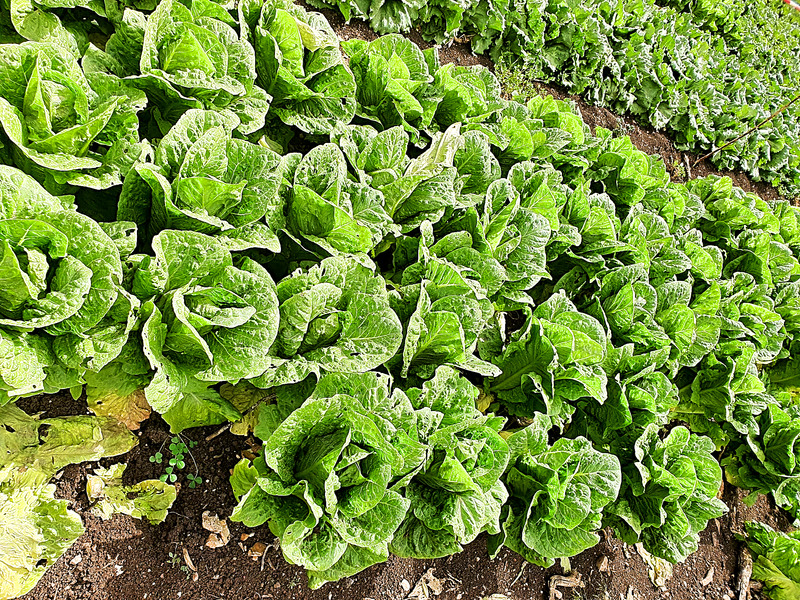
A ripe harvest in one of the Israeli kibbutzim. Photo credit: © Oksana Mats
Modern-Day Farming Techniques in Israel
Today, Israel is hailed as a global leader when it comes to advanced farming techniques - think hydroponic, vertical, and robotic farming practices. In its most simple form, hydroponics ‘skips’ the soil, finding different materials to support the plant roots and grow the crop directly, in water-rich with nutrients. This means farmers can grow and produce food anywhere in the world, at any time of the year, as well as netting higher yields using fewer resources. You also don’t have to wait for ‘the season’ or worry that your crop will be lost due to bad weather!
Smart Design that Improves Productivity in the Midst of a Pandemic!
The Israeli farmer is also becoming adept with the techniques of vertical and robotic farming. Vertical farming in Israel allows farmers to grow crops in vertically stacked layers. One Israeli agri-tech start-up in Raanana (about 40 minutes drive from Tel Aviv) - VerticalField - created these farms in urban areas, using technical expertise and smart design geoponic technology.
Equally innovative is Israel’s robotic system that automates greenhouse tasks, at the same time gathering data (to improve quality). In the pandemic, for instance, many Israeli farmers worked with robots, operating the software from their homes. This meant the number of staff at greenhouses could be kept to a minimum and social distance maintained!
Equally fascinating are the start-ups that have revolutionized milk production in Israel, using robots that will completely automate the production, at a much lower cost than normal. This kind of technology and scientific know-how is being exported all over the world so that farms in South East Asia and South America can improve their own practices when it comes to feeding and milking cows. 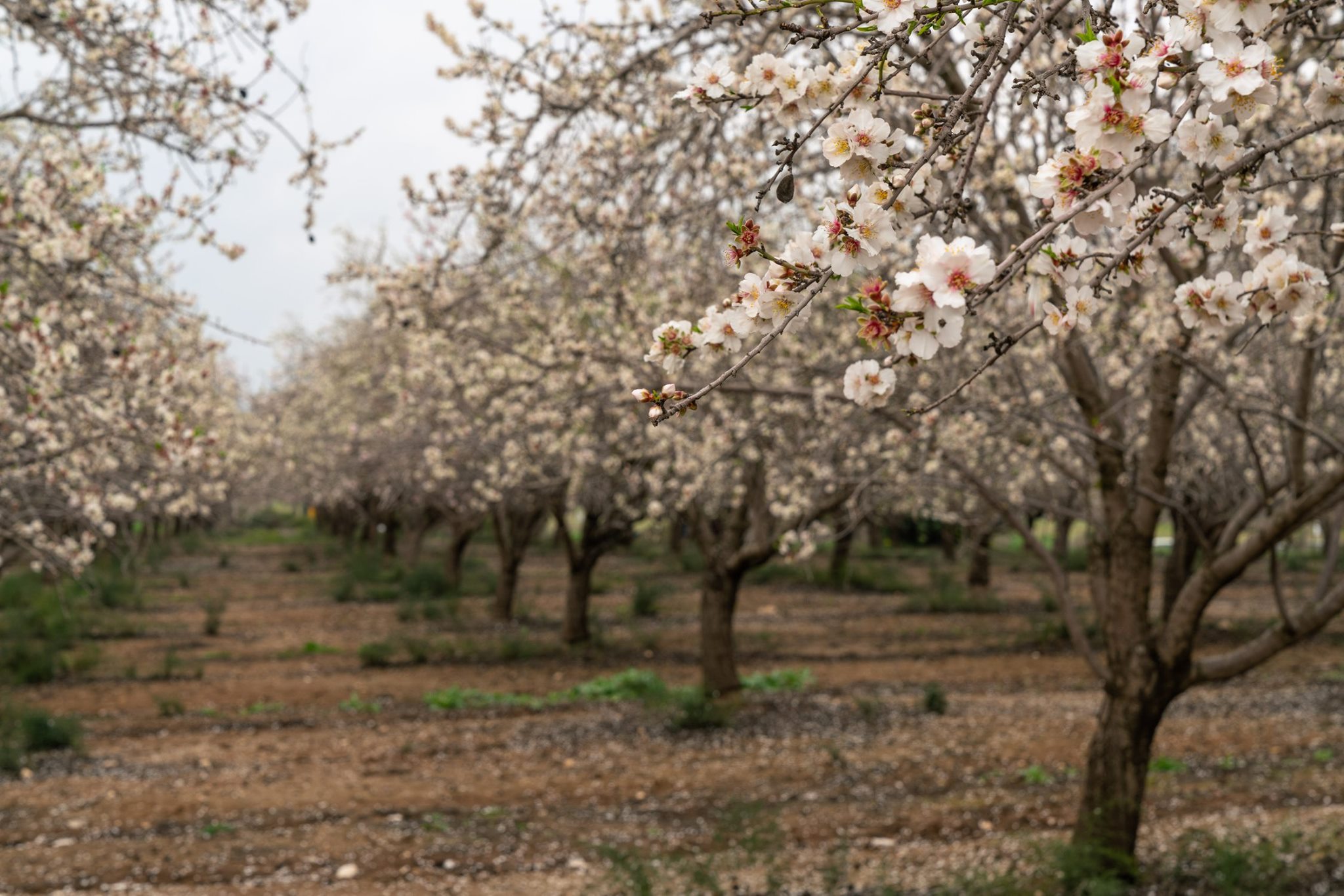
Blossoming almond grove, Israel. Photo credit: © Dmitry Mishin
Urban Farming and Revolutionary Restaurants!
This is also a growing trend in Israel, particularly in the big cities. ‘Green in the City’ is at the forefront of all kinds of aquaponic and hydroponic solutions, including hothouses on the roof of the Dizengoff Mall shopping center in central Tel Aviv! Cucumbers, mint, lettuce, kale, and green onions are amongst the many things people can pick up from baskets (there are no sellers, it works on an honor system).
Tel Aviv Restaurant L28 even took it one step further - the produce they use actually comes from their rooftop kitchen. Urban agronomy involves sunlight, insects, and chemistry but it really can work, as they’ve proved. They also have a ‘wet well’ using hydroponics) to grow greens on the menu!
What Kind of Farms Can You Find in Israel?
Where do we begin? Fruits and vegetables? Animals? Spices? Delectable cheeses? Here are a few of the farms that have really made a name for themselves in the last few years, and have become popular both with locals and people coming on a trip to Israel. Antelope Ranch, Arava Desert - this farm/ranch is great for kids, as they have a ‘Noah’s Ark’ and a mini-safari. The place is full of antelopes and zebras, different birds, and surrounded by desert hills. You can camp here or take a private ‘zimmer’. A real African experience in Israel!
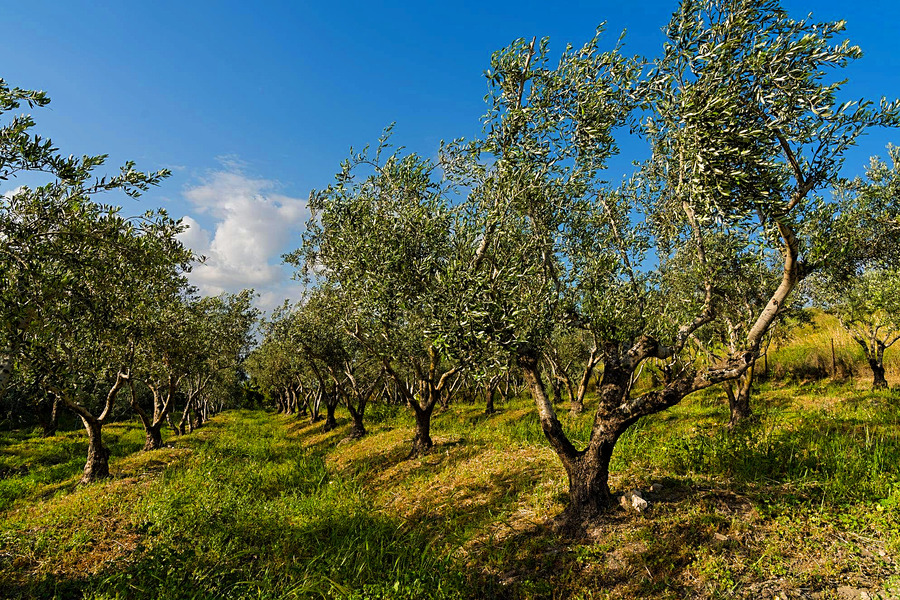
Olive grove in Latrun, Israel. Photo credit: © Dmitry Mishin
Herb and Spice farm, Kibbutz Hulata, Galilee - here you can buy over 200 types of herbs, spices, and medicinal plants, all grown locally in Upper Galilee. With over 50 years of experience, this family knows all about growing, drying, and blending herbs, using traditional methods.Desert Olive Farm, Sde Boker - this is more of a getaway than a farming experience! Here, you can experience the Negev desert, either by staying in an Indian tent, an African ecological cabin, or a luxurious suite, as you enjoy the peace of the desert by day and the bright starry skies at night.
Kornmehl Farm, Negev desert - located in the Negev Hills, this is a great place to come if you love goat’s cheese, a new variation of a French classic. Anat and Daniel rear goats who roam freely and are not fed antibiotics and their artisanal cheeses are to die for!
Alpaca Farm, Mitzpe Ramon - overlooking the Ramon Crater in Mitzpe Ramon, in the Negev, this farm is guaranteed to be a hit with the kids, who love to pet these South American animals. This is a working farm, with the wool from these furry creatures used to create unique items of clothing, and as you walk around you are even welcome to feed the alpacas and llamas! There are also 20 horses available for riding…!
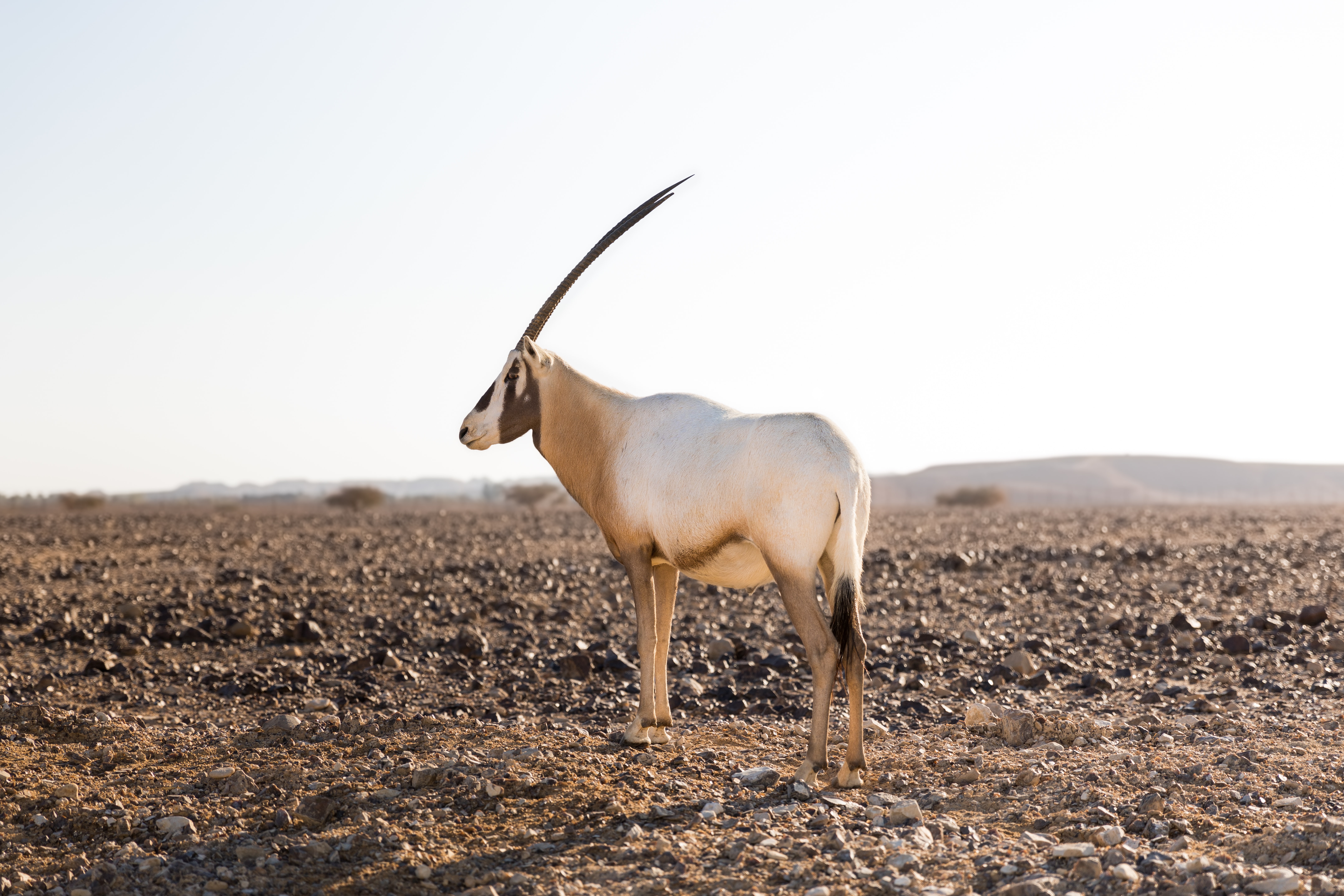
Antelope ranch in the Negev Desert, Israel. Photo by Dennis van Lith on Unsplash
Ein Camonim - in Israel’s Upper Galilee, this is another goat farm in Israel that’s been going since the late 1970s and boasts an excellent restaurant, where you can try all kinds of classic cheese. They also make their own olive oil using ancient stone presses. Try their all-you-can-eat vegetarian gourmet buffet, which includes freshly baked bread. The kids are also welcome to pet the goats…Shvil Hasalat, Negev - located down south in Israel’s Negev desert at moshav Talmei Yosef, here you can take a 3-hour tour, led by Uri Alon, an international agronomist). You’ll stop at places such as strawberry and tomato greenhouses, orchards of Chinese oranges, and a herb section and after an explanation of how it all works, you’ll get to pop some of the fruits in your mouth!
Hava and Adam Farm - equidistant between Jerusalem and Tel Aviv, this farm gives young adults the chance to learn more about sustainable living and permaculture, by volunteering on their organic farm. They put an emphasis on personal development too and provide long-term programs for those who are interested in working on the land long-term.
Mandankoi, Kibbutz Magan Michael - up on the coast, less than an hour’s drive from Tel Aviv, you can tour this Israeli fish farm, which is a leader in koi breeding. A great place to learn about - and purchase - all kinds of tropical fish.
Crocoloco Crocodile Farm, Arava - Located 140 km north of Eilat, in the barren desert, this farm is run by a South African couple who are crazy about a certain kind of reptile. They offer guided tours and lots of fun facts for kids about these amazing creatures and if you’re lucky you’ll even get to hold a baby one in your hand! Educational and fun.
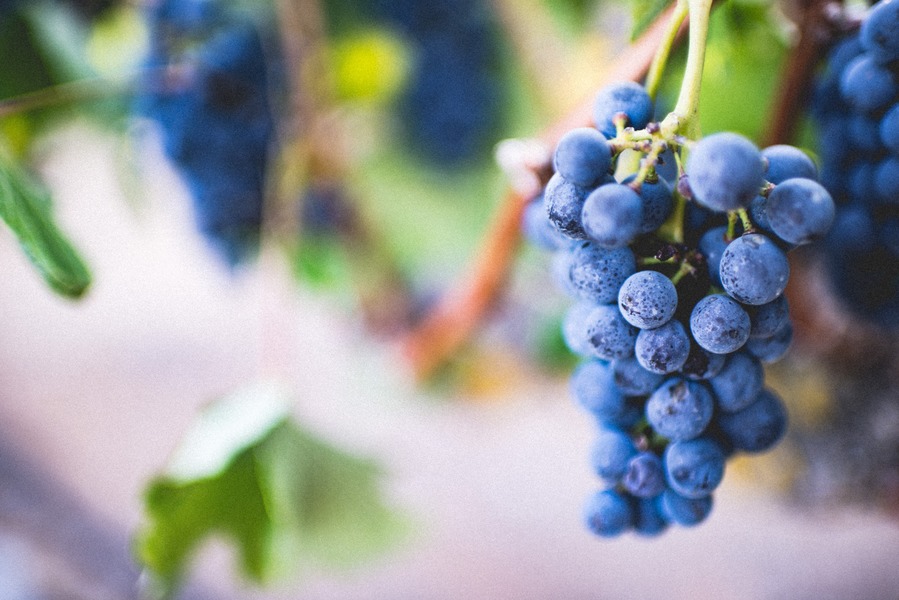
Vineyard in Israel. Photo by Amos Bar-Zeev on Unsplash
Champignon Farm, Western Galilee - founded in 1982 as a family business, today this farm employs a wide range of workers including agronomists, growers, maintenance workers, and exchange students. They’re growing all kinds of edible mushrooms using unique methods that yield high-quality crops, and the produce tastes amazing!Vered HaGalil, Western Galilee - lovely farm accommodation in charming, rustic cabins, with beautiful views looking down on the Sea of Galilee. Guests can enjoy horseback riding at sunset too. This unique farm stay in Israel has 120 dunams of greenery and orchards, so you’ll really be able to relax in peace and quiet.
Kurlander Farm, Moshav Beit Hillel - up in the Golan Heights, this fantastic state-of-the-art dairy farm is run by three generations of the Kurlander family. Take a tour and learn all about newborn calves, learn about the secrets of milk production and enjoy some tasty chocolate milk. Kids can pet and feed the animals and you can take home fruits and olive oil too. If you call ahead, you can arrange a visit to their orchards and olive groves. Tours are held each day at midday.
Davida Animal Farm, Yish’i - not too far a drive from Jerusalem, this charming farm is a great place to bring young children, with admission price including a petting corner and horse riding and bouncy houses. Kids can also have a ‘tractor experience’ and watch goats being milked. A good place to bring a picnic - they have tables in the shade!
The Camel Ranch, Dimona - not too far from Beer Sheva, this is a chance for kids to learn more about camels...you can actually take a trip out into the desert on them. The owners are kind and serve you mint tea too! Our tip - try the ice cream - it’s made from camel milk! For those that want to make a weekend out of it, they offer simple clean accommodation, with kitchen facilities and you can sit out by a bonfire at night, after dinner.
If you are interested in visiting some Israeli farms, consider joining Megiddo and the Jezreel Valley Farm Private Tour.
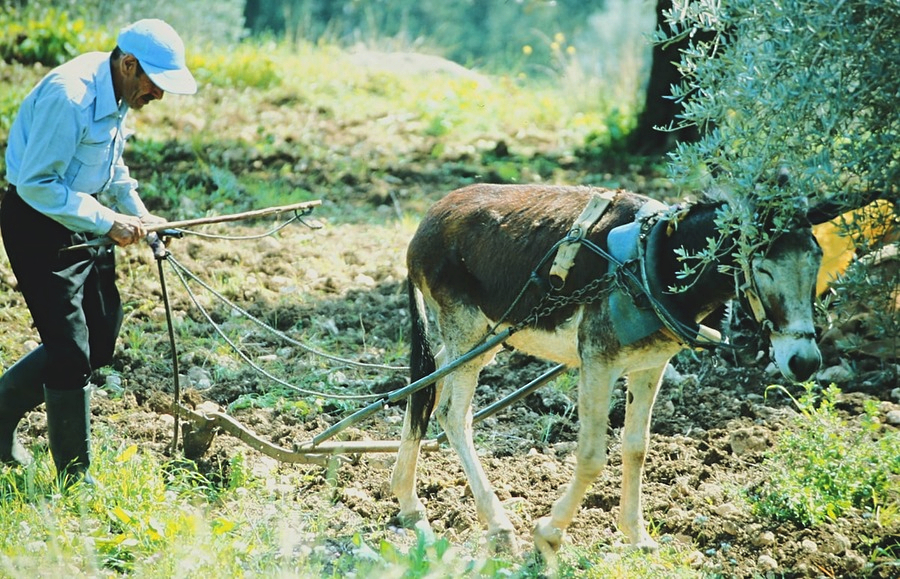
Old-fashioned farming in the Biblical Garden in Yad HaShmona, Israel. Photo by Georg Arthur Pflueger on Unsplash
 Login / Register
Login / Register
 Contact Us
Contact Us
 Certificate of Excellence
Certificate of Excellence Guaranteed Departure
Guaranteed Departure Low Prices Guaranteed
Low Prices Guaranteed 24/7 Support
24/7 Support




